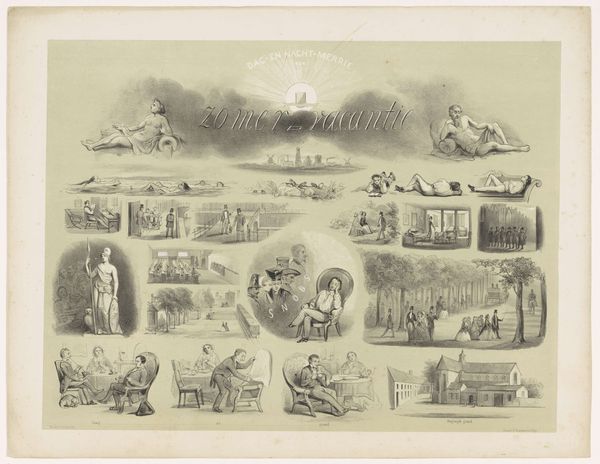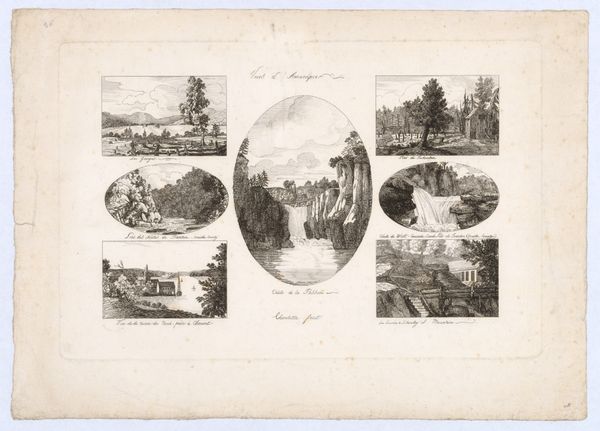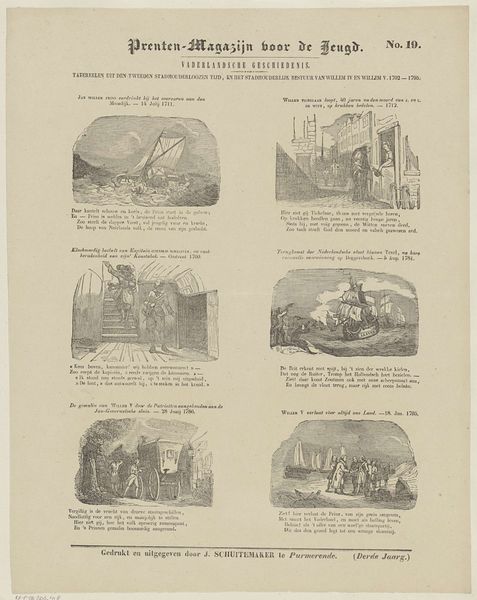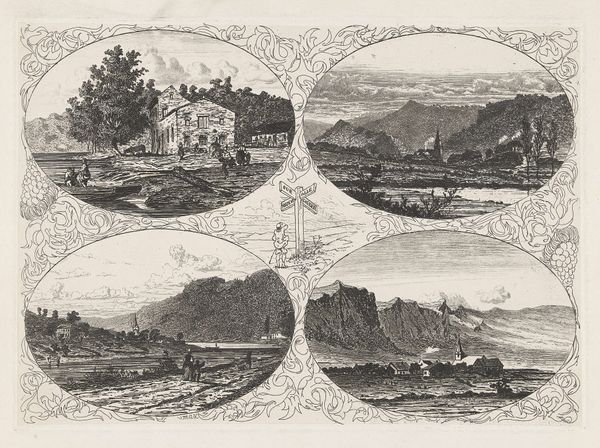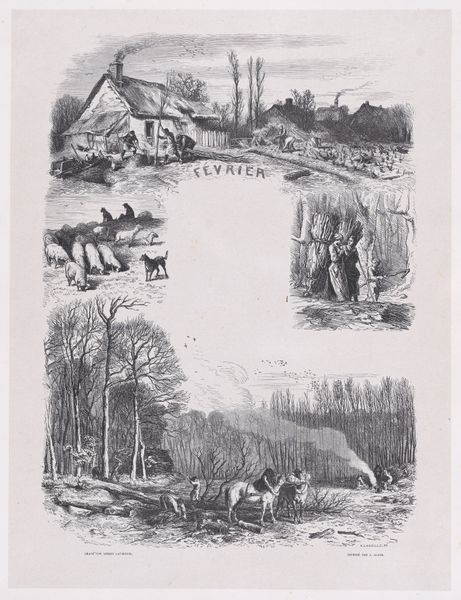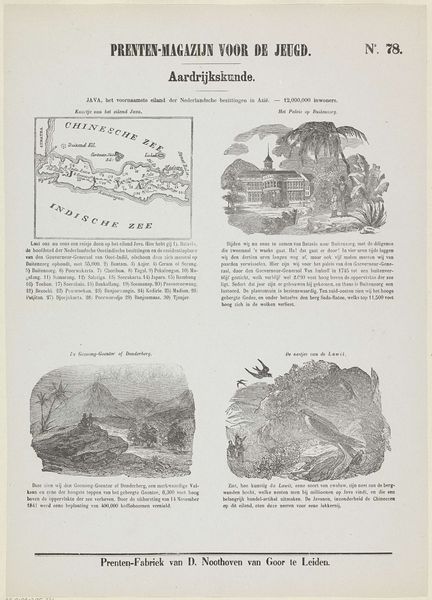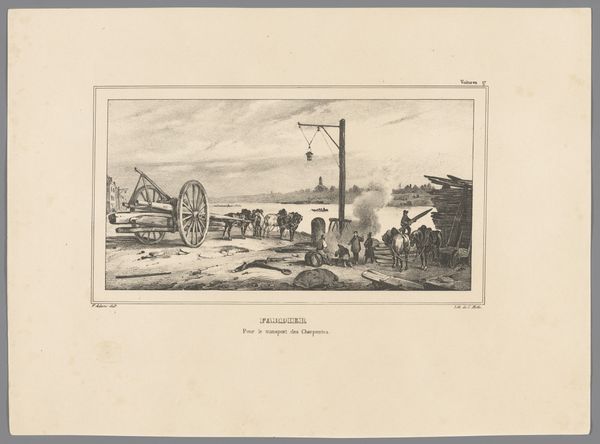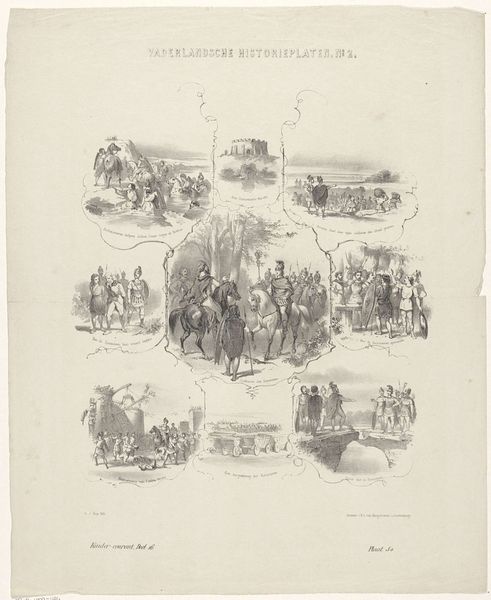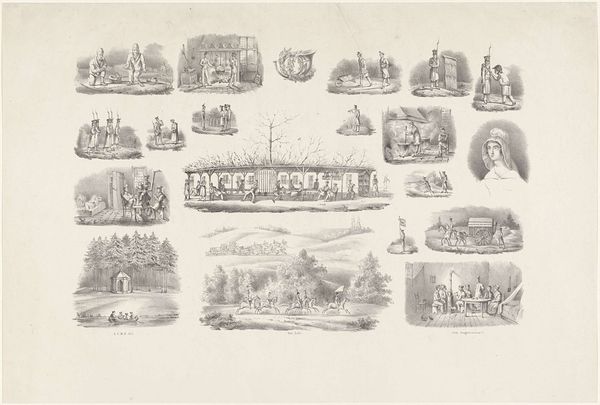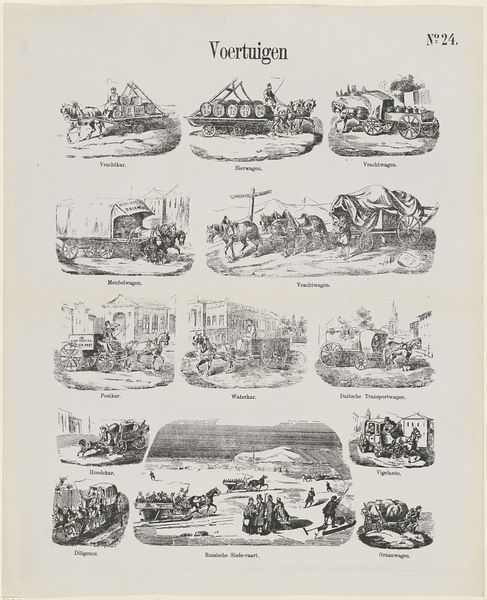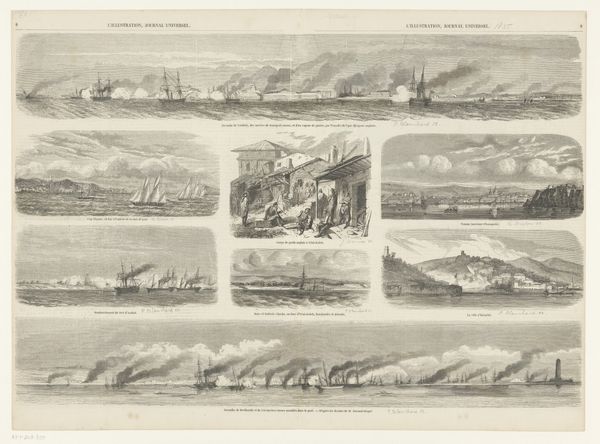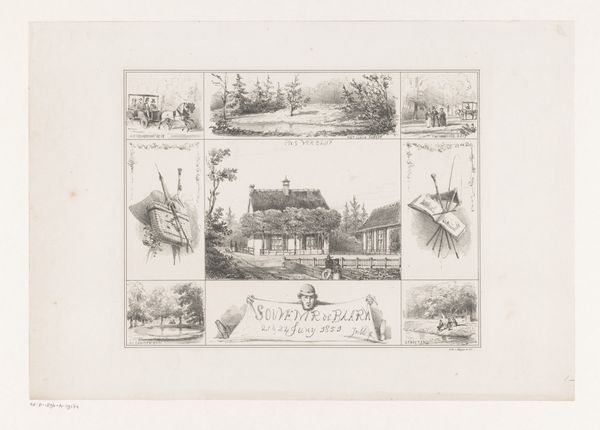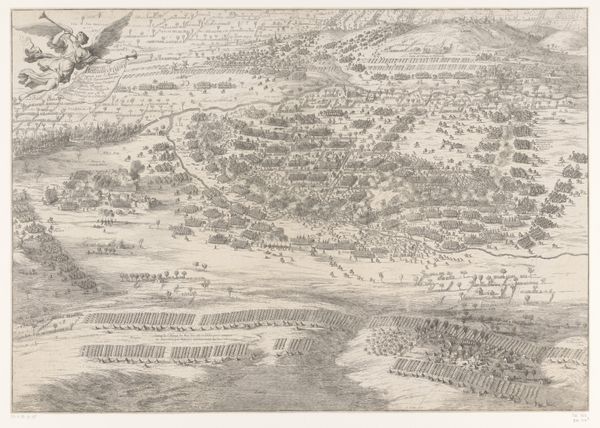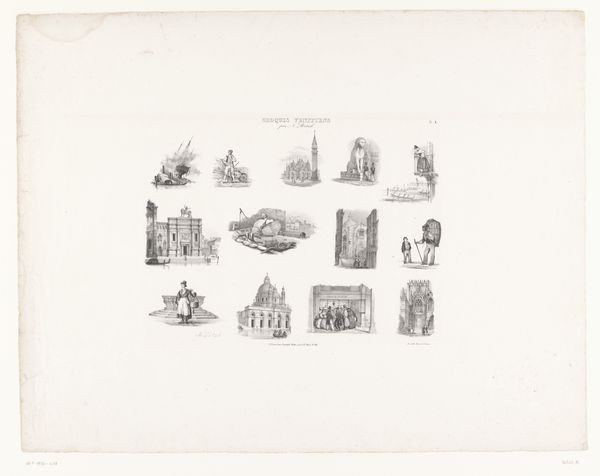
print, engraving
# print
#
pencil sketch
#
old engraving style
#
landscape
#
pen-ink sketch
#
watercolour illustration
#
genre-painting
#
history-painting
#
engraving
#
realism
Dimensions: height 585 mm, width 825 mm
Copyright: Rijks Museum: Open Domain
Carel Christiaan Antony Last made this print, Watervloed in den Bommelerwaard Januarij 1861, using a technique called lithography. It’s a printmaking process, but it’s not like carving into wood or metal. Instead, the artist draws on a flat stone with a greasy crayon, then treats the stone so that ink only sticks to the drawn areas. The image is then printed onto paper. This method allowed for a relatively quick and easy way to reproduce images, making them accessible to a wider audience. In this case, lithography serves to document the devastating flood. The choice of lithography speaks to the desire to disseminate this information widely, almost like a news report. You could even say, it anticipates photojournalism, recording the social impact of a natural disaster and the labor involved in rebuilding. Last’s print blurs the lines between art, documentation, and social commentary, revealing the power of reproductive media to shape public awareness and collective memory.
Comments
No comments
Be the first to comment and join the conversation on the ultimate creative platform.
